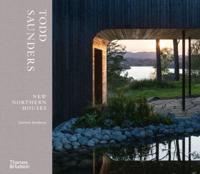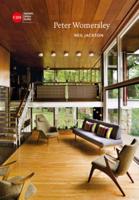Publisher's Synopsis
With the advent of Prairie style architecture, Frank Lloyd Wright embarked on a journey that would forever change the course of architecture. During this extraordinarily prolific period, roughly the first quarter of the twentieth century, Wright built the first great modern American houses. He cast aside many of the conventions of the past, opening up interior spaces so that there might be a more subtle flow of rooms. The plans for Prairie style architecture were based on a tartan plaid of main spaces and secondary spaces, of public rooms and circulation spaces. Their decentralized asymmetry did not follow the Beaux Arts insistence on a primary, often dominating, focal point-a vestige of its roots as a symbolic architecture for divine-right royalty. Following Wright's philosophy, Prairie design was emphatically democratic and non-hierarchical. Frank Lloyd Wright Prairie Houses comprehensively demonstrates this philosophy. Focusing on interiors and details, the book features more than 70 Prairie style houses and other buildings, still extant, in lavish, full-color photography.












